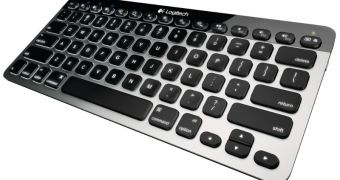One might argue that marketing forecasts shouldn't be paid too much attention to, but then we'd have to deny the fact that they can help people plan better for the future, based on the idea of how things will turn out.
For instance, IHS iSuppli looked into the future of Bluetooth Integrated circuits and surmised that shipments of such ICs will double by 2017.
So now, based on this prediction, we can say that the use of Blueooth as a means to communicate between devices will double too.
We aren't certain whether it will happen at the expense of other technologies, like Wi-Fi and NFC (near-field communication).
Given the funds fueled into them, and 3G, we can only think that gadgets and PCs will be much more widespread and often bought than today.
Bluetooth will probably be integrated in lots of small appliances and low-cost gadgets too, something previously impossible. We may even see Bluetooth "networks" or hubs built into walls or included as standard part of homes.
Whatever the reason, chips providing or including Bluetooth technology will rise to 3.1 billion units in 2017, 91% more than the 1.6 billion of 2011.
"Smartphones and tablets are packing increasing capabilities into products that have a lower cost and a thinner form factor," said Liam Quirke, connectivity analyst at IHS.
"All this is driving demand for more highly integrated ICs, including Bluetooth-enabled connectivity chips and mobile SoCs. Most of the leading smartphone platforms already make use of integrated connectivity ICs, and increasingly will adopt Bluetooth-enabled MSoCs in the future."
In 2012, 75% of all Bluetooth chip shipments were combination connectivity ICs, but the share will, oddly enough drop to 55% in 2017. Mobile SoCs will steal their share, so to speak.
"Mobile SoCs benefit manufacturers by reducing design complexity while providing lower-cost mobile platform solutions," Quirke said. "IHS is projecting that lower-end smartphones will be quick to adopt such solutions."

 14 DAY TRIAL //
14 DAY TRIAL //